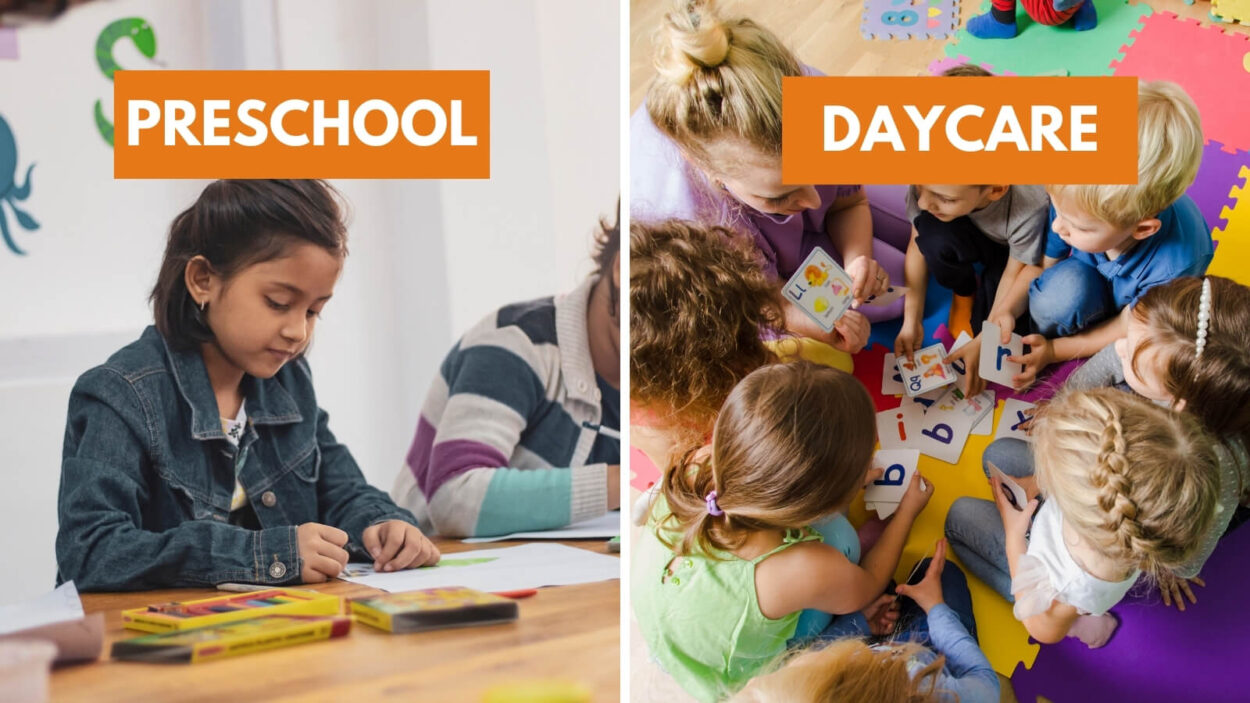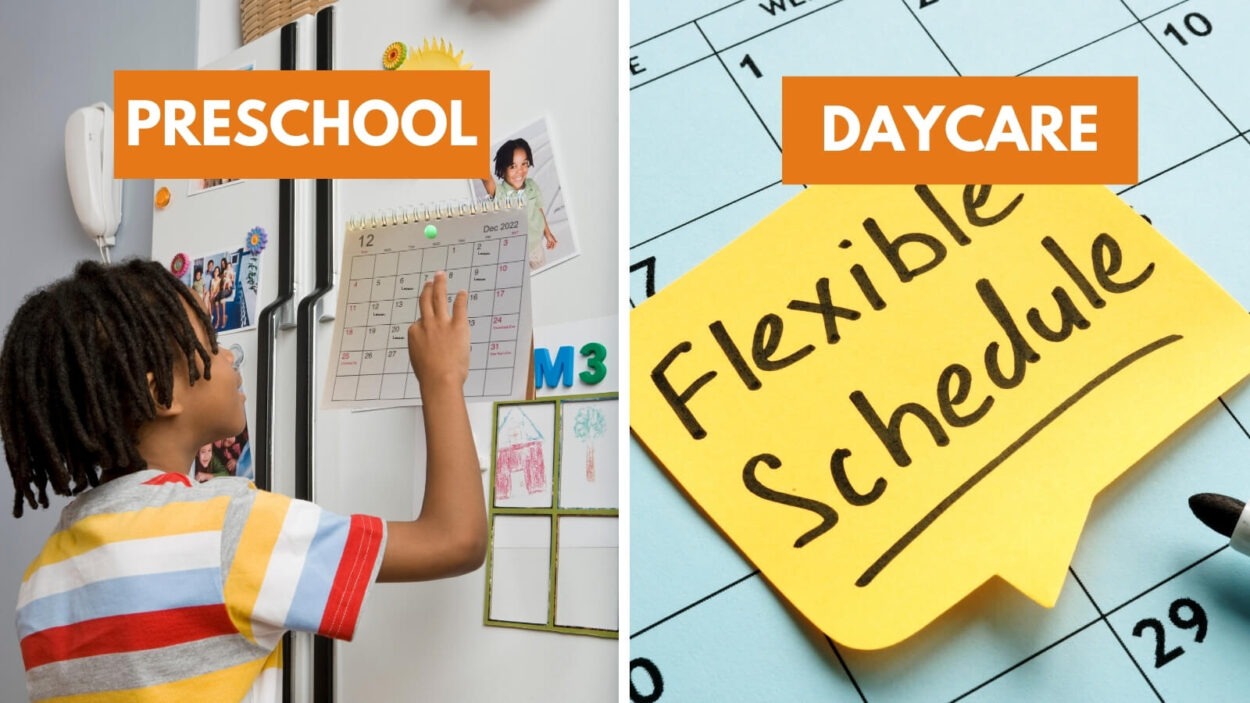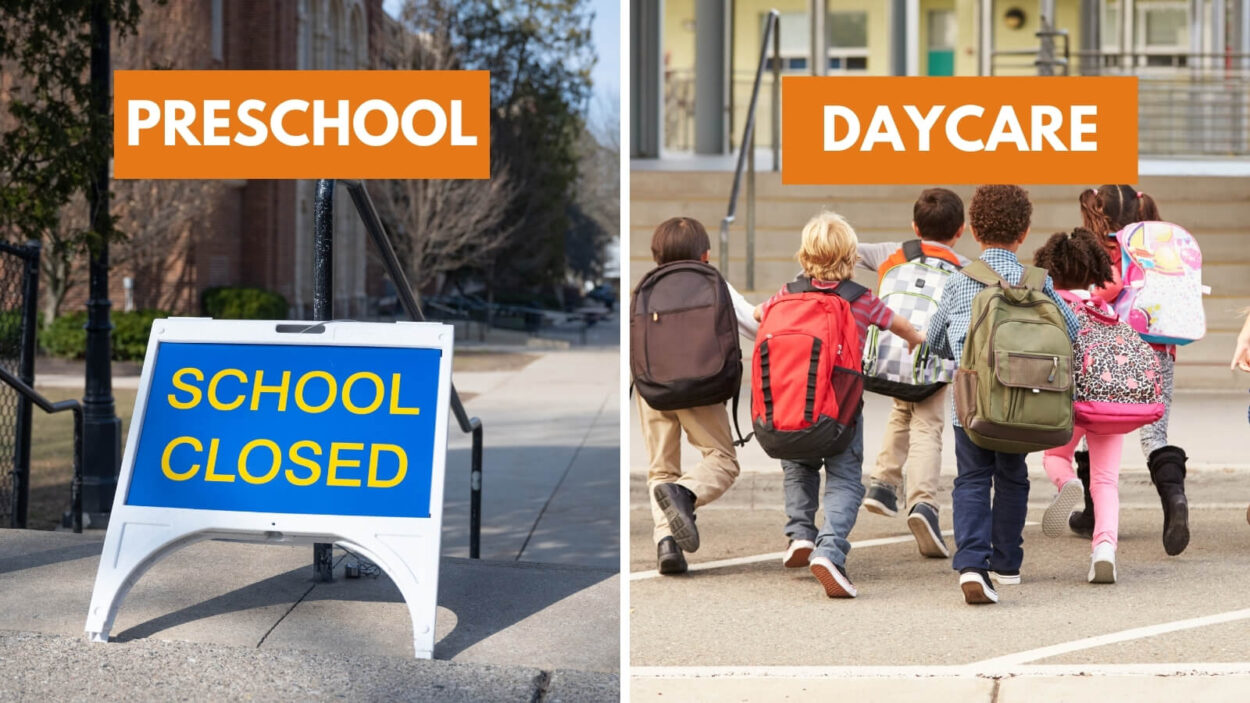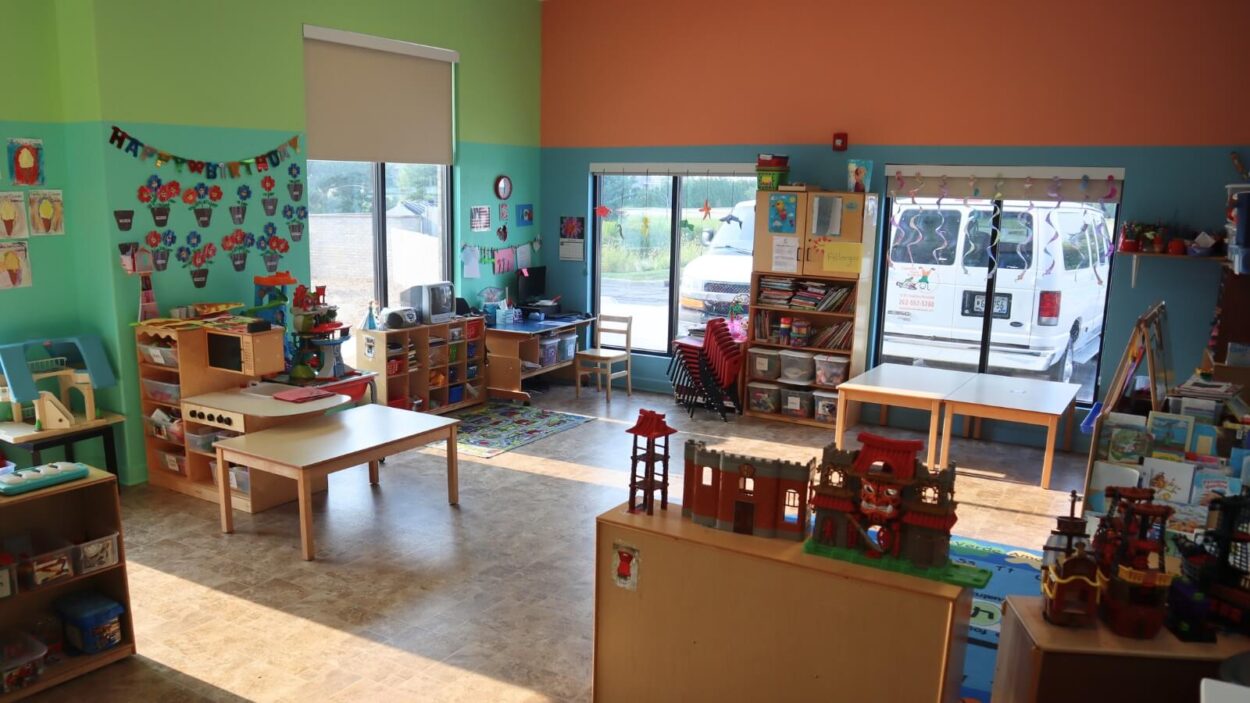Where does the time go? It feels like just yesterday you were holding your newborn baby in your arms, and now you’re wondering if they should go off to preschool or stay enrolled in daycare. If you’ve been scratching your head, trying to figure out what the difference is, that’s okay. These words are often used interchangeably, but they have less in common than you may think.
Read on to learn more about the key differences between daycare and preschool, and what you should consider when trying to decide where you want your enroll your little one.
Differences Between Daycare & Preschool
What Purpose Do They Serve?

- Daycare is designed to be an option that safely supervises your child throughout the day, with an emphasis on care and nurturing. It’s meant to be especially helpful for parents who work full or part-time, or for parents who just need a break in their week. It’s a more play-based environment, and while your little one will still learn a lot, the lesson plans are less strict and more individually tailored to the unique educational and emotional needs of your child.
- Preschool, while still being a safe space for children to spend their day, has more of a focus on education. While your child will still be having fun, the environment is more formal, and educational techniques are more frequently being used. Preschools tend to be less tailored to the needs of your individual child and have a greater emphasis on the group of children as a whole.
What Are the Age Requirements?
- Daycares welcome a wide range of children—from itty bitty infants all the way up to grade schoolers. This is because of the wide variety of programs offered by daycares to accommodate a variety of parental needs and family types. It doesn’t matter if they’re still in diapers or being bottle-fed; a daycare will handle it all. If you have children of multiple ages who need care, this is a great option because they’ll all be in one place. (Only one spot for after-school pick-up!)
- Preschools have more strict age requirements. Typically, they only accept children ages 3 to 5. This is because the structured, educational environment of a preschool can be difficult for children younger than 3. Preschool-aged children also have some developmental milestones that they have to hit in order to be accepted, such as being potty-trained.
How Are Days Structured?

- During your average day of daycare, there is a lot of time for open play. This allows the little ones to discover new things, begin to use their imagination, and learn how to properly socialize with other children. There are still many structured activities that happen throughout the day, like coloring, singing, and dancing, but children are not required to participate if they don’t want to.
- Preschool is where structure and scheduling are added to the classroom. When children do an activity, they all do it together, such as story time or an art project. They also begin a more structured lesson plan where the ideas build on one another. For example, they may learn how to count to 5, and then 10, and so on.
What Activities Do They Do?
- As we’ve mentioned, daycares are more play-based and include games, art, educational lessons, and social activities. At Cornerstone Academy, for example, our curriculum features outdoor movement, the exploration of your child’s imagination, self-sufficiency skills, and group time. Daycares are meant to encourage early development while still prioritizing fun!
- Preschools tend to do a lot of the same activities that daycares do, although it may be slightly more regimented. There is a little less time for open play, and a greater focus on education.
What Are the Hours?

- Daycares offer childcare year-round, even in the summer! They tend to open early and close late—usually opening around 6 am or 7 am and closing around 5 pm or 6 pm. (This is to accommodate the schedules of working parents and caregivers.) They’re only closed on major holidays, like Christmas or Thanksgiving, or in the event of inclement weather.
- Preschools tend to only be open during “average school hours”, which are between 8 am and 3 pm. They follow a pretty standard public school schedule, which means they’re closed for breaks, holidays, and summer vacations. Because of this, it’s not uncommon for parents to enroll their kids in both preschool and daycare.
Should My Child Be in Daycare or Preschool?
This is an important (but not easy to answer) question asked by many parents! There are a few things to consider before deciding whether to enroll your child in daycare or preschool. Ask yourself:
- Does my child meet the age and developmental milestones?
- How many hours a week do I need child care?
- Do I want child care that offers more flexibility? Or one that has a more rigid schedule?
- If I need to, will I have time to pick my child up after work?
- Does my child thrive better in a more nurturing or education-based environment?
- Do I have children of varying ages who all need childcare?
Remember, every child and family situation is different, and what works for you might not work for someone else. It’s important to take your lifestyle and the needs of your child into consideration before making a decision.
Interested in Enrolling Your Preschool-Age Child at Cornerstone?

Do you have a preschool-aged child? Then consider enrolling them in our 3k or 4k program! Designed for children ages 3 to 5, the 3k and 4k programs provide a nurturing and intellectually enriching environment that helps set the stage for your little one’s future academic and social success.
At Cornerstone Academy, we offer both full-time and part-time enrollment options to meet all of your childcare needs. Just contact us today—we’re happy to schedule a tour of the facility or answer any questions you may have!




